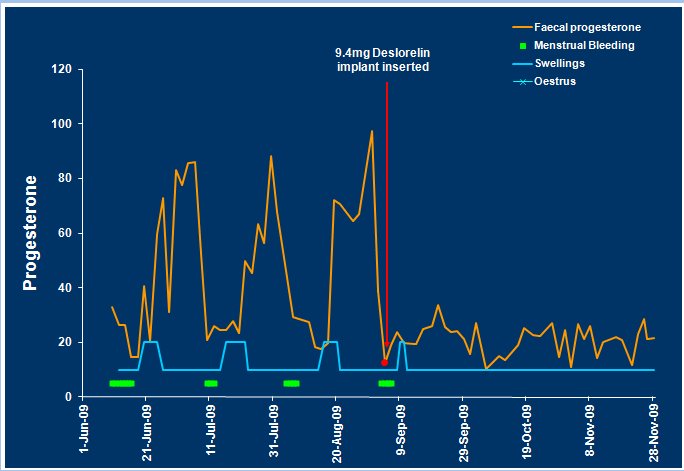Monitoring efficacy
We would strongly like to encourage all institutions using contraception to take a holistic approach when it comes to using contraception as it is incredibly important to ensure the health and safety of our animals as well as efficacy of the products.
Hormone monitoring
Hormone monitoring allows us to accurately determine the latency to effect as well as the delivery and duration of the product.
It is also important to monitor the hormones of animals that are no longer on contraception in order to determine if animals have resumed their ovarian cycles or testosterone level.
Chester Zoos faecal collection protocol can be found here.
Organisations that offer non-invasive endocrine monitoring include:
- Chester Zoo Endocrine Laboratory - mammals, birds, amphibians
- National Wildlife Management Centre (APHA) - mammals, birds, reptiles, amphibians
- German Primate Centre (DPZ) Göttingen - primates, elephants, rhino
- Institute for Zoo and Wildlife Research (IZW) - felids, ursids, elephants
- Franz Schwarzenberger (University of Veterinary Medicine, Vienna) - rhino, giraffe
- Rotterdam Zoo

Behavioural monitoring
Placing animals on contraception can affect an animals’ behaviour and it is incredibly important to ensure there are no negative effects on the dynamic of the social group, and we would encourage all institutions using contraception in their animals to supplement bouts with behavioural observations.
Please contact contraception@chesterzoo.org for more information or advice on hormone, health and behavioural monitoring.